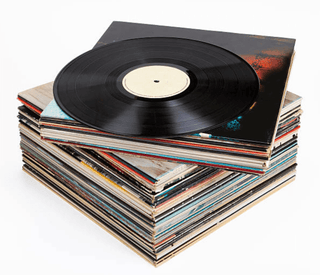Cotton Club

Combining electric song and dance performances with drama (both on and off screen), Francis Ford Coppola's The Cotton Club (1984) looks back to the 1920s-1930s peak of the legendary Harlem nightclub where only blacks performed and only whites could sit in the audience. Mixing historical figures with characters loosely based on actual people, Coppola and co-writers William Kennedy and The Godfather's Mario Puzo create a panorama of love, crime, and entertainment centered on the Club. Among them are cornet player Dixie Dwyer (Richard Gere, playing his own solos), who escapes psycho gangster "benefactor" Dutch Schultz (James Remar) for a George Raft-type Hollywood career as a gangster film star; Schultz's nubile mistress Vera Cicero (Diane Lane), who loves Dixie against her mercenary instincts; Cotton Club Mob owner Owney Madden (Bob Hoskins) and close associate Frenchy Demarge (Fred Gwynne); Vincent (Nicolas Cage), Dixie's no-good Mad Dog Coll-esque brother; Club tap star Sandman Williams (Gregory Hines), who woos ambitious light-skinned Club singer Lila Rose Oliver (Lonette McKee); and cameos by Charles "Honi" Coles and Cab Calloway impersonator Larry Marshall. Complementing the period story, Coppola evokes the style of '30s gangster movies and musicals through an array of old-fashioned devices like montages of headlines, songs and shoot-outs. Conceived by producer Robert Evans as his crowning achievement and directorial debut, Evans had to hand over the troubled production to Coppola, but the budget spiraled out of control as the script was repeatedly re-written throughout the chaotic shoot. By the time it was released, The Cotton Club's epic production story of power struggles, financial bloat, and even a murder overshadowed the "reunion" of The Godfather's creative team. Neither a Heaven's Gate-sized failure nor a wallet-saving hit like Coppola's Apocalypse Now, The Cotton Club got some favorable critical notices (although it drew fire for subordinating the African American stories). It did not, however, find a large enough audience to justify its expense and controversy, becoming another mark against 1970s "auteur" cinema in increasingly blockbuster-driven 1980s Hollywood.
Combining electric song and dance performances with drama (both on and off screen), Francis Ford Coppola's The Cotton Club (1984) looks back to the 1920s-1930s peak of the legendary Harlem nightclub where only blacks performed and only whites could sit in the audience. Mixing historical figures with characters loosely based on actual people, Coppola and co-writers William Kennedy and The Godfather's Mario Puzo create a panorama of love, crime, and entertainment centered on the Club. Among them are cornet player Dixie Dwyer (Richard Gere, playing his own solos), who escapes psycho gangster "benefactor" Dutch Schultz (James Remar) for a George Raft-type Hollywood career as a gangster film star; Schultz's nubile mistress Vera Cicero (Diane Lane), who loves Dixie against her mercenary instincts; Cotton Club Mob owner Owney Madden (Bob Hoskins) and close associate Frenchy Demarge (Fred Gwynne); Vincent (Nicolas Cage), Dixie's no-good Mad Dog Coll-esque brother; Club tap star Sandman Williams (Gregory Hines), who woos ambitious light-skinned Club singer Lila Rose Oliver (Lonette McKee); and cameos by Charles "Honi" Coles and Cab Calloway impersonator Larry Marshall. Complementing the period story, Coppola evokes the style of '30s gangster movies and musicals through an array of old-fashioned devices like montages of headlines, songs and shoot-outs. Conceived by producer Robert Evans as his crowning achievement and directorial debut, Evans had to hand over the troubled production to Coppola, but the budget spiraled out of control as the script was repeatedly re-written throughout the chaotic shoot. By the time it was released, The Cotton Club's epic production story of power struggles, financial bloat, and even a murder overshadowed the "reunion" of The Godfather's creative team. Neither a Heaven's Gate-sized failure nor a wallet-saving hit like Coppola's Apocalypse Now, The Cotton Club got some favorable critical notices (although it drew fire for subordinating the African American stories). It did not, however, find a large enough audience to justify its expense and controversy, becoming another mark against 1970s "auteur" cinema in increasingly blockbuster-driven 1980s Hollywood.







